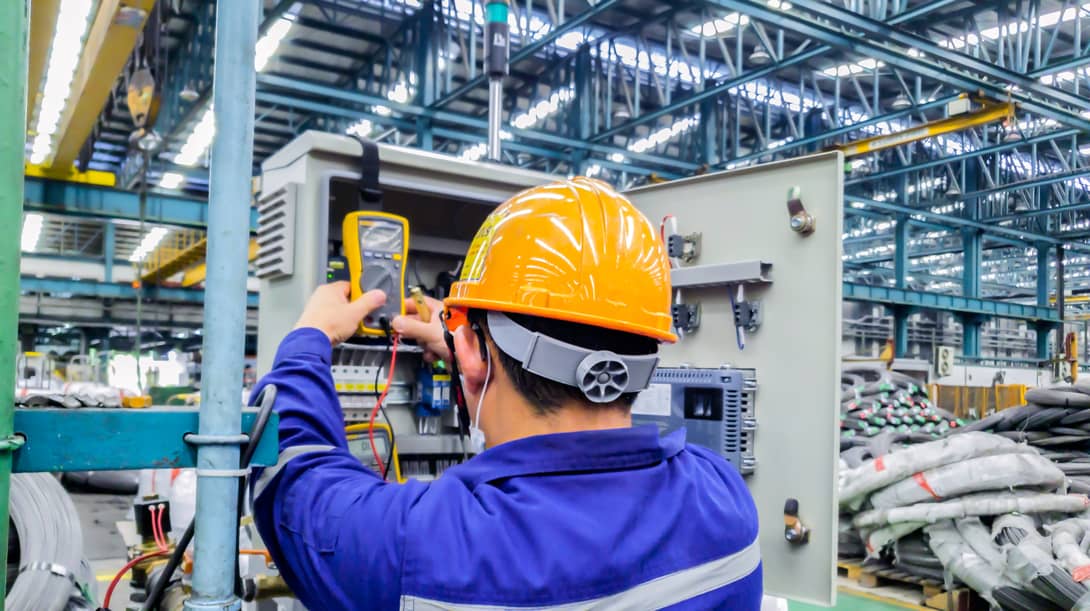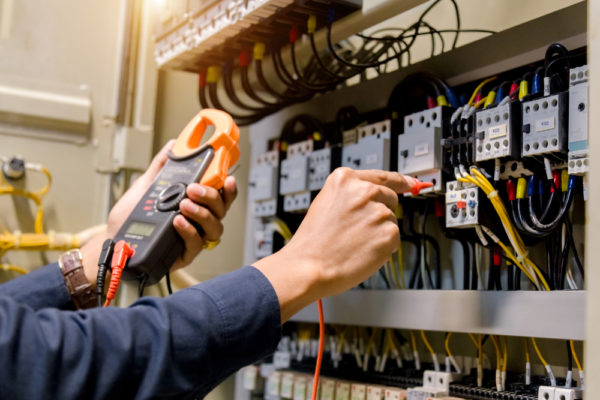Ingenious Bre Automation Techniques for Streamlining Industrial Electrical Workflow
The Detailed Role of Industrial Electricians in Ensuring Reliable Power Distribution and Electric Maintenance in Industrial Setup
The role of commercial electrical contractors expands far past basic electric tasks; they are essential to the stability and efficiency of industrial procedures. Their duties include installation, maintenance, and fixing of complex electric systems, guaranteeing conformity with stringent security criteria. As sectors develop, the integration of advanced modern technologies and wise systems provides new obstacles and possibilities for these experts. Comprehending how their expertise not just safeguards functional continuity however additionally adds to sustainability efforts elevates important concerns concerning the future landscape of electric maintenance in commercial setups. What implications does this have for the workforce and technological improvement?
Importance of Industrial Electricians
In many industrial settings, the role of electrical experts can not be overemphasized. Industrial electrical contractors have specialized understanding of complex electric systems, consisting of high-voltage equipment and automated equipment, which are necessary for modern-day commercial procedures.
In addition, the need for experienced electrical experts continues to expand, driven by improvements in technology and increased dependence on automated systems. As sectors advance, the requirement for electricians that can install, repair, and maintain innovative electrical framework ends up being vital. Their payments prolong beyond mere installment; they are principals in making sure compliance with security regulations and sector criteria, consequently reducing risks related to electric failures.
Trick Responsibilities and Obligations
Industrial electrical contractors often engage in a range of vital obligations that are important to the smooth procedure of power distribution systems. Among their primary responsibilities includes installing, preserving, and fixing electric circuitry and equipment in commercial setups. This involves making certain that electrical systems abide by safety laws and market standards to protect against hazards such as electrical fires or equipment failure.
Along with setup jobs, industrial electricians are accountable for troubleshooting and identifying electric concerns. They utilize specialized tools and strategies to recognize faults in machinery and power circulation networks, making certain that any kind of malfunctions are promptly addressed to minimize downtime. licensed electrical contractor. Routine maintenance is an additional essential element of their role, where they perform precautionary steps and routine evaluations to maintain systems operating efficiently

Skills and Certifications Needed
Proficiency in electrical systems is essential for commercial electrical experts, as it allows them to successfully navigate the complexities of power circulation (licensed electrical contractor). A solid foundation in electric concept, including expertise of circuits, voltage, current, and resistance, is critical. Industrial electrical experts must possess a thorough understanding of electric codes and policies to ensure compliance with industry standards
Along with technological knowledge, view it sensible skills are vital. Efficiency in troubleshooting and analytic allows electricians to detect and fix problems efficiently, decreasing downtime in commercial procedures. Knowledge with different devices and tools, such as multimeters, oscilloscopes, and power analyzers, is additionally required for reliable maintenance and repair.
In addition, industrial electricians are typically called for to have official education, generally culminating in an associate degree or completion of an apprenticeship program. These programs give hands-on training and academic expertise, equipping electrical contractors with the skills required for the area.
Accreditations, such as those from the National Institute for Accreditation in Engineering Technologies (NICET), can better boost an electrician's qualifications, showing competence and dedication to the career. On the whole, a mix of education, functional experience, and technological skills is vital for success in this requiring duty.
Safety Standards and Compliance
Conformity with safety and security criteria is a fundamental aspect of the industrial electrician's role in power circulation. Industrial electrical experts are entrusted with sticking to a wide range of standards and laws developed by organizations such as the National Electrical Code (NEC) and Occupational Safety and Wellness Management (OSHA) These criteria ensure not only the risk-free operation of electrical systems but also the protection of personnel and equipment.
To achieve conformity, electricians need to conduct normal examinations and maintenance of electrical systems, recognizing prospective hazards and carrying out restorative procedures. This consists of correct grounding, circuit protection, and the usage of suitable individual protective tools (PPE) By maintaining a detailed understanding of both local and nationwide codes, electrical experts can efficiently mitigate dangers related to electrical job.
Moreover, industrial electrical experts play an important duty in training personnel on safety practices and emergency treatments. This education promotes a society of safety within the work environment, lowering the likelihood of mishaps and making certain that all employees understand their obligations concerning electrical safety.

Future Fads in Electrical Upkeep
As innovation continues to progress, the future of electric maintenance in power distribution is significantly characterized by the integration of clever systems and predictive analytics. These advancements allow commercial electrical experts to move beyond standard responsive upkeep strategies, fostering a positive technique that boosts system reliability and efficiency.
One considerable pattern is the fostering of Net of Points (IoT) tools, which promote real-time surveillance of electric systems. This technology permits the collection of vast quantities of information, providing insights into tools performance and potential failure points. By leveraging predictive analytics, electrical experts can prepare for concerns prior to they escalate, lowering downtime and upkeep prices.
In addition, the application of innovative automation technologies is transforming electric upkeep. Automated diagnostic tools can promptly identify faults and suggest restorative activities, enhancing the repair service procedure. This not only improves feedback times but additionally lessens human error.
Moreover, the growing focus on sustainability is driving the development of energy-efficient remedies and renewable resource assimilation. As industrial sectors progressively adopt greener methods, electricians will play an essential role in preserving anchor these systems, making certain that power circulation straightens with environmental criteria. On the whole, the future of electric upkeep guarantees improved sustainability, performance, and dependability.
Verdict
In verdict, industrial electrical experts are important to the capability and security of industrial environments. The duty of commercial electrical contractors will certainly proceed to expand in significance.
The role of commercial electricians prolongs much past fundamental electrical jobs; they are integral to the stability and effectiveness of commercial procedures (licensed electrical contractor). Industrial electricians possess specialized understanding of intricate electric systems, including high-voltage equipment and automated equipment, which are vital for modern-day commercial procedures
Moreover, industrial electrical contractors work together click here to find out more with designers and other specialists to design and apply reliable electrical systems customized to details commercial needs.Effectiveness in electrical systems is necessary for industrial electrical experts, as it enables them to effectively navigate the complexities of power circulation.In final thought, commercial electrical contractors are vital to the capability and safety of commercial settings.